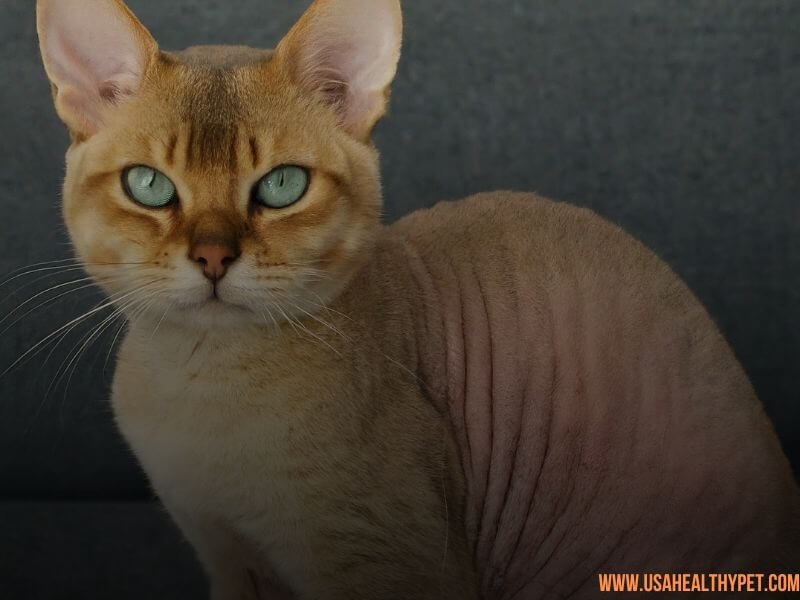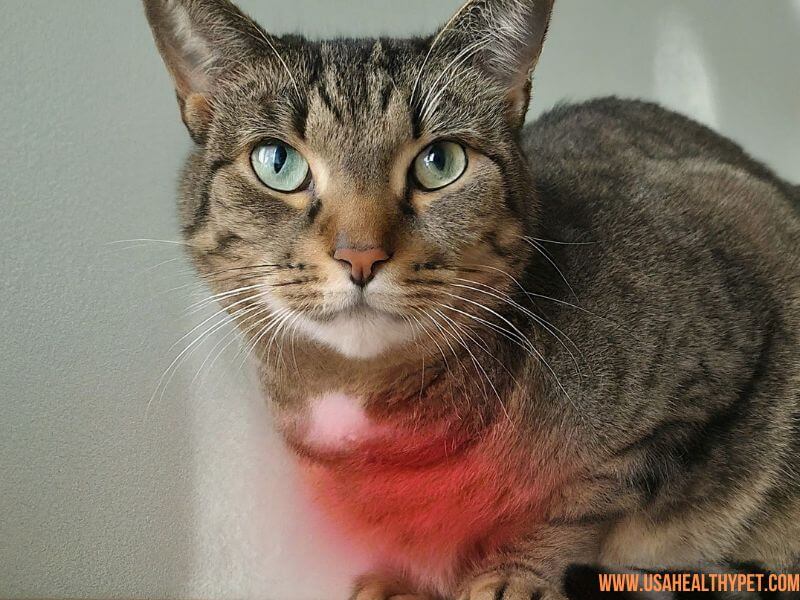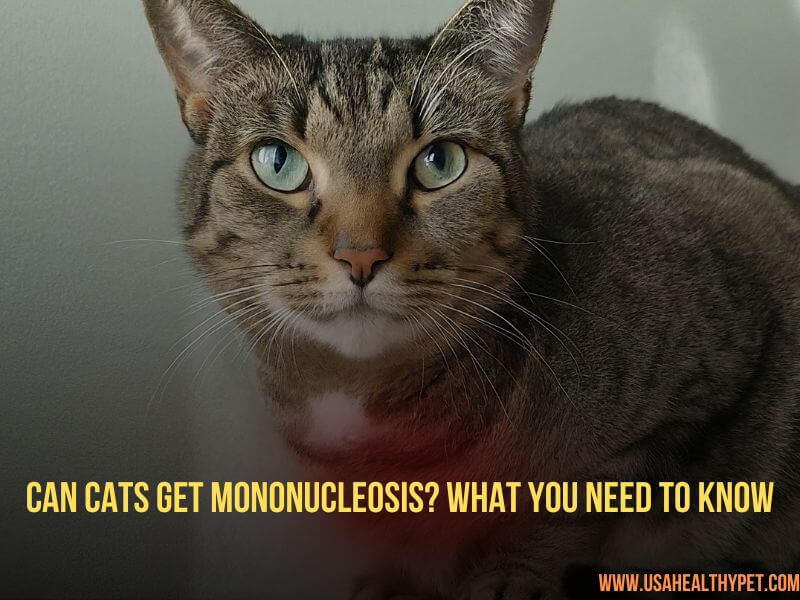Many pet owners worry about their furry friends catching human illnesses, like mononucleosis—commonly known as “mono” or the “kissing disease.”
But can cats get mono? The short answer is no. Cats cannot contract mononucleosis the way humans do.
Mononucleosis is a viral disease specific to humans, caused by the Epstein-Barr virus (EBV), which doesn’t affect cats.
Let’s dive deeper to understand why this is the case and what symptoms in cats might look similar but are quite different.
What Is Mononucleosis?
Mononucleosis is a viral infection caused by the Epstein-Barr virus (EBV). It’s often called the “kissing disease” because it spreads through saliva, but it can also be transmitted through other bodily fluids.
According to the Centers for Disease Control and Prevention (CDC), mono is most common in teenagers and young adults, though it can affect people of all ages.
In humans, mono can cause symptoms like fatigue, sore throat, fever, and swollen lymph nodes.
Can Cats Get Mononucleosis?
Dr. Jane Sykes, a veterinary expert in infectious diseases, explains that mononucleosis is a human-specific disease caused by the Epstein-Barr virus, which does not affect cats.
However, this doesn’t mean your cat is immune to all viral infections. Cats have their own set of viruses and illnesses that can cause similar symptoms.

How Is Mononucleosis Transmitted?
In humans, mononucleosis is primarily transmitted through saliva. This can happen through kissing, sharing drinks, or even through droplets in the air.
The Epstein-Barr virus can also spread through blood and other bodily fluids, though this is less common.
Since cats cannot get mono, they also cannot transmit the virus to humans or other animals.
Symptoms of Similar Illnesses in Cats
While cats can’t get mononucleosis, they can still show symptoms that might make you worry they have a similar illness. These symptoms can include:
- Fatigue
- Fever
- Swollen lymph nodes
- Sore throat or mouth ulcers
- Loss of appetite
If your cat is displaying any of these symptoms, it’s important to consult with your veterinarian to determine the cause.
Diagnosing Similar Illnesses in Cats
Since cats cannot contract mononucleosis, there is no test for this specific illness in cats.
However, suppose your cat is showing symptoms that resemble mono.
In that case, your vet may run a series of tests to rule out other viral or bacterial infections, such as feline calicivirus or herpesvirus, which could be causing the symptoms.

Treatment Options for Cats
Treatment will depend on what is actually causing your cat’s symptoms. If your cat has a viral infection, treatment may include:
- Rest and isolation
- Fluids to prevent dehydration
- Medication to manage symptoms like fever and pain
Your veterinarian will guide you on the best course of action to ensure your cat recovers as quickly as possible.
Preventing Viral Infections in Cats
While you don’t need to worry about preventing mononucleosis in cats, it’s always good to keep your cat healthy by:
- Ensuring they are up to date on vaccinations
- Providing a balanced diet
- Regular vet check-ups
- Keeping them away from sick animals
Can Humans Transmit Mononucleosis to Cats?
You might be wondering if you could accidentally give your cat mono if you’re sick. Thankfully, the answer is no. The Epstein-Barr virus is specific to humans and does not infect cats.
So, while it’s still a good idea to avoid close contact with your cat if you’re sick (to avoid spreading other germs), you don’t have to worry about giving them mono.

How to Keep Your Cat Healthy
Keeping your cat healthy involves more than just worrying about specific illnesses. Here are some tips:
- Regular Vet Visits: Annual check-ups can catch potential health issues early.
- Good Nutrition: Feed your cat a balanced diet with the nutrients they need.
- Exercise and Play: Keep your cat active to prevent obesity and keep them mentally stimulated.
- Clean Environment: A clean litter box, fresh water, and a tidy living space help reduce the risk of illness.
Common Misconceptions About Cats and Mononucleosis
There are a few myths out there about cats and mono. Let’s clear them up:
- Myth 1: Cats can get mono from humans.
Fact: Cats cannot contract mononucleosis. - Myth 2: If my cat is tired and has swollen lymph nodes, they must have mono.
Fact: While these symptoms can be concerning, they do not indicate mono in cats. Always consult your vet for an accurate diagnosis. - Myth 3: If I have mono, I should isolate from my cat.
Fact: There’s no need to isolate your cat specifically for mono, but good hygiene is always recommended.
When to See a Vet
If your cat is showing any signs of illness, especially if they are lethargic, have a fever, or have swollen lymph nodes, it’s crucial to consult your veterinarian. Early intervention can prevent more serious health issues.
Final Thoughts
While it’s a relief to know that your cat can’t catch mononucleosis, it’s still essential to stay alert about their health.
Understanding the differences between human and feline illnesses can help you make better decisions for your pet’s well-being.
Conclusion
In summary, cats cannot get mononucleosis, a disease caused by the Epstein-Barr virus in humans.
However, cats can exhibit similar symptoms due to other infections, so it’s important to keep a close eye on their health and consult a vet if anything seems off.
Remember, maintaining your cat’s overall health through regular check-ups, good nutrition, and a clean environment is key to preventing illness.
FAQs
- Can cats get sick from human viruses?
Most human viruses do not affect cats, but it’s always good practice to maintain hygiene and avoid close contact when you’re sick. - What should I do if my cat has a fever?
If your cat has a fever, consult your vet immediately. Fevers can indicate an underlying infection that may need treatment. - Are there any viruses similar to mononucleosis that affect cats?
While cats can’t get mono, they can get other viral infections like feline herpesvirus or calicivirus, which can cause similar symptoms. - How can I boost my cat’s immune system?
A balanced diet, regular exercise, and keeping your cat’s vaccinations up to date are key ways to boost their immune system. - Is it safe to let my cat sleep in my bed if I have mono?
Yes, it’s safe because mono is not transmissible to cats. However, practicing good hygiene is always a good idea.

Pingback: Why Does My Cat Sleep with His Mouth Open? Causes, and Tips
Pingback: Do Cats Like Belly Rubs? Understanding Feline Behavior
Pingback: Why Does My Male Cat Cry at Night? Causes, and Solutions
Pingback: Can Cats Eat Bread Crusts? Safety, Risks, and Alternatives